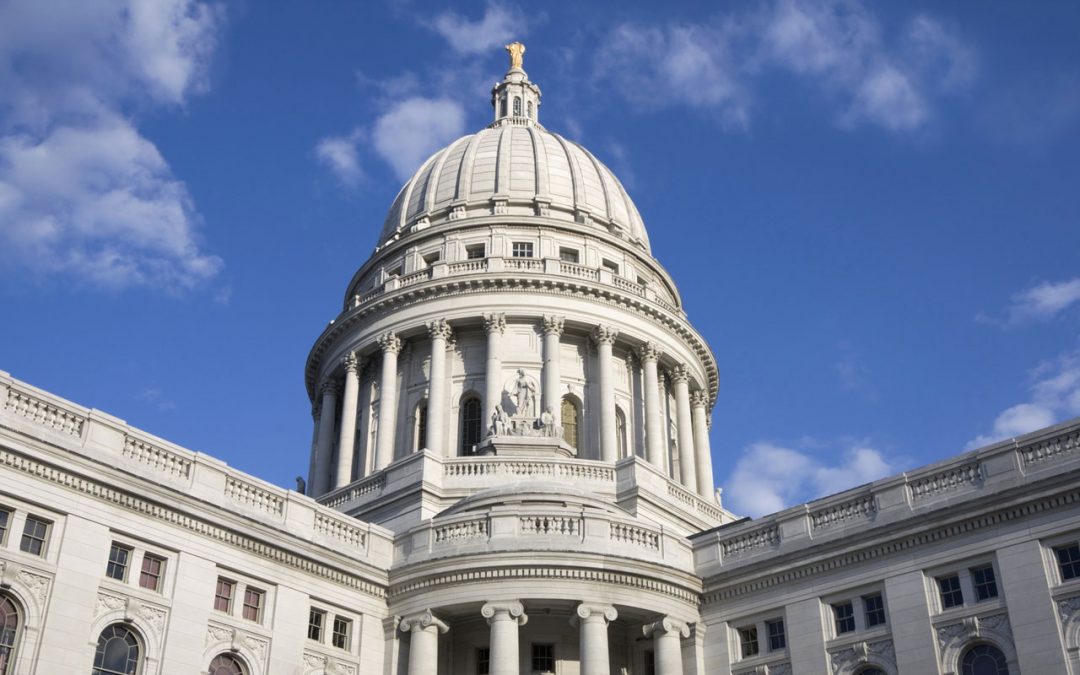
by Jim Boullion | Feb 14, 2022 | Action Alert, Advocacy, Electric Vehicles, Legislative Watchlist
On Friday, February 11th SB 573 was recommended for passage on a 3-2 vote by the Senate Committee on Utilities, Technology, and Telecommunications. The bill was immediately put on the State Senate floor calendar for tomorrow, Tuesday, February 15th. If the bill passes the Senate, it will go to the State Assembly, where it would be available for full adoption at any time before the end of the floor session on March 10th.
This legislation clarifies that selling electricity to electric vehicles (EVs) by the minute, kilowatt, or other means does not subject EV charging station owners to utility regulation as long as the owner meets several requirements. Among those requirements in the amended bill are several provisions that are of concern:
1. Requires that all electricity sold through an electric vehicle charger must come from the local utility. This stipulation would prohibit EV chargers that get any of their electricity from a non-utility-owned rooftop or standalone solar+storage system from being available to the public if they charge a fee.
2. No local governments, which includes cities, villages, towns, counties, school districts, special purpose districts, or any state agency, may own, operate, manage, lease or control an EV charging facility available to the public. Local governmental units may authorize a utility or private entity to operate a charger on their property.
For background, you can view RENEW’s testimony on this bill here.
Please contact your legislators in both the Senate and Assembly, and ask them to oppose this legislation unless those issues are corrected!
Thank you for your support!
Please email RENEW Wisconsin Director of Government Affairs, Jim Boullion, if you have any questions.

by Jim Boullion | Feb 1, 2022 | Action Alert, Advocacy, Electric Vehicles, Legislative Watchlist
AB 588 / SB 573 (Sen. Cowles and Rep. VanderMeer) will have a hearing in the State Senate and a committee vote in the Assembly this week at the State Capitol. This legislation attempts to clarify that selling electricity by the kilowatt-hour (instead of by the minute as is the current practice) to electric vehicles (EVs) does not subject EV charging station owners to utility regulation. However, the bill has been amended with several provisions that are of concern:
- Requires that all electricity sold through an electric vehicle charger must come from the local utility, prohibiting EV chargers that get any of their electricity from a rooftop or standalone solar+storage system from being available to the public if they charge a fee.
- No city, village, town, county, school district, or state agency may own, operate, manage or lease a publicly available charging facility. Municipalities may authorize a utility or private entity to operate a charger on their property.
The Senate Committee on Utilities, Technology, and Telecommunications has scheduled a Public Hearing on SB573 for Wednesday, February 2, 2022, at 10:30 am, 400 Southeast. The public may testify at this hearing. Keep testimony under 5 minutes and provide a written copy if possible.
Members: Julian Bradley (Chair), Roger Roth (Vice-Chair), Van Wanggaard, Brad Pfaff, Jeff Smith
Assembly Committee on Energy and Utilities has scheduled an Executive Session to vote on AB588 on Thursday, February 3, 2022, at 11:00 am, 412 East, State Capitol, Madison. There is no public testimony at this hearing (the public hearing was in October). View RENEW’s testimony on this bill here.
Members: Mike Kuglitsch (Chair); David Steffen (Vice-Chair); Travis Tranel; Loren Oldenburg; Warren Petryk; Adam Neylon; Tyler Vorpagel; Gary Tauchen; Kevin Petersen; Cody Horlacher; Beth Meyers; Lisa Subeck; Deb Andraca; Supreme Moore Omokunde; Sara Rodriguez
Please contact your legislators, especially if they are members of one of those committees, and express your concerns with this legislation.
We also encourage you to attend the hearing in the Senate Utilities Committee on February 2nd to oppose these restrictions.
Thank you for your support!
Please email RENEW Wisconsin Director of Government Affairs, Jim Boullion, if you have any questions.
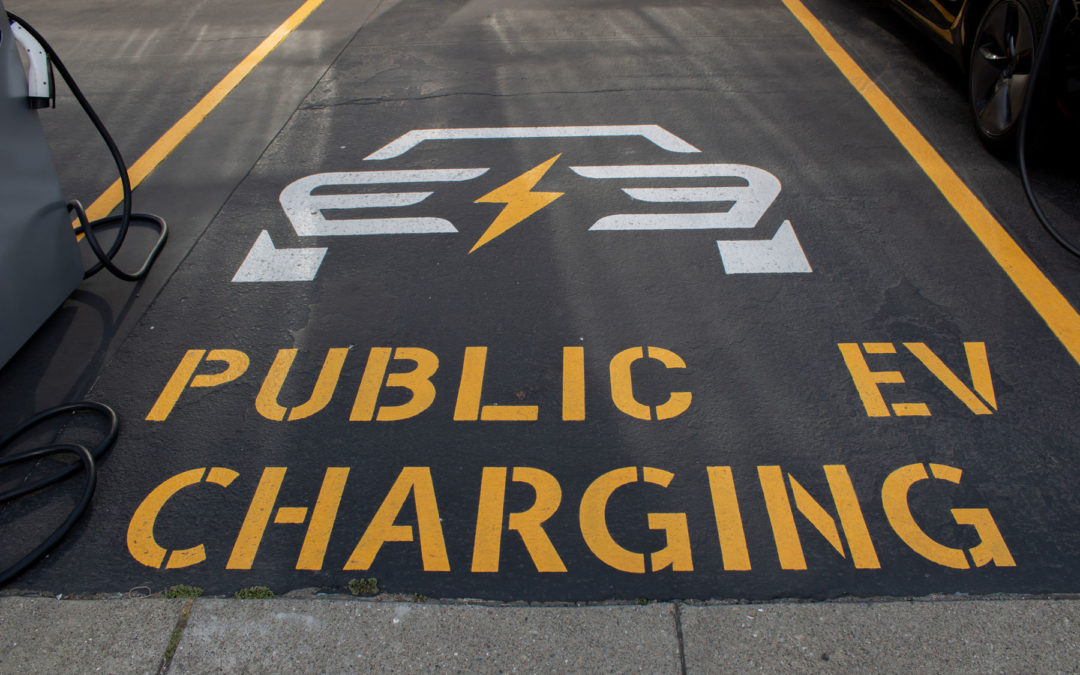
by Jeremy Orr | Nov 9, 2021 | Electric Vehicles, Legislative Watchlist
On Friday, the House of Representatives passed the $1.2T Infrastructure Investment and Jobs Act – better known as the Federal Infrastructure Package – which will provide billions of dollars for electric vehicles, including:
- $7.5B for a national electric vehicle (EV) charging network
- $2.5B for zero-emission-only school buses
- $2.5B for zero-emission and low-emission school buses
- $6.1B domestic battery manufacturing and recycling, and
- $65B for electric grid upgrades (to support renewable energy development)
Although this list is not comprehensive of everything included in the Bill, Wisconsin can expect to receive $79M over five years to develop an electric vehicle charging network and be eligible to apply for the $2.5B in grant funding dedicated to electric vehicle charging stations.
Considering that a lack of public charging has been the primary barrier to electric vehicle adoption in the U.S. – especially in Wisconsin – the influx of funds for charging stations will likely result in a boon to the EV market.
Looking forward, to avoid stranded assets and ensure the likelihood of use, Wisconsin should consider a strategic deployment of public charging stations. Planning should include modeling that views EV penetration rates and market data, the volume of traffic data, potential station costs per site, and other relevant information, similar to Michigan’s method for developing its Charge Up Michigan program. Doing so will minimize total investment costs of stations – especially for site hosts and other stakeholders – ensure the feasibility of intercity and intracity electric vehicle trips, and contribute to better grid management.
And speaking of investment, don’t forget that Wisconsin’s slated $79M in funding for electric vehicle charging stations could result in a five-fold return on investment, in addition to a $2.60 private investment for every $1 of public dollars spent on transportation electrification measures. In other words, the $79M investment could result in a five-fold return of $395M, with an additional $205,400,000 in private investments. These numbers don’t include the economic benefits of potential jobs created in a vastly expanding transportation electrification sector. Wisconsin may also receive federal monies from domestic battery manufacturing, zero-emission vehicles, the Build Back Better Act, or other federal and state clean energy programs.
This bill is a huge win for Wisconsin, and it will go a long way to advance our clean energy transition. Wisconsin will get the most “bang for its buck” if we are purposeful and precise in our planning.
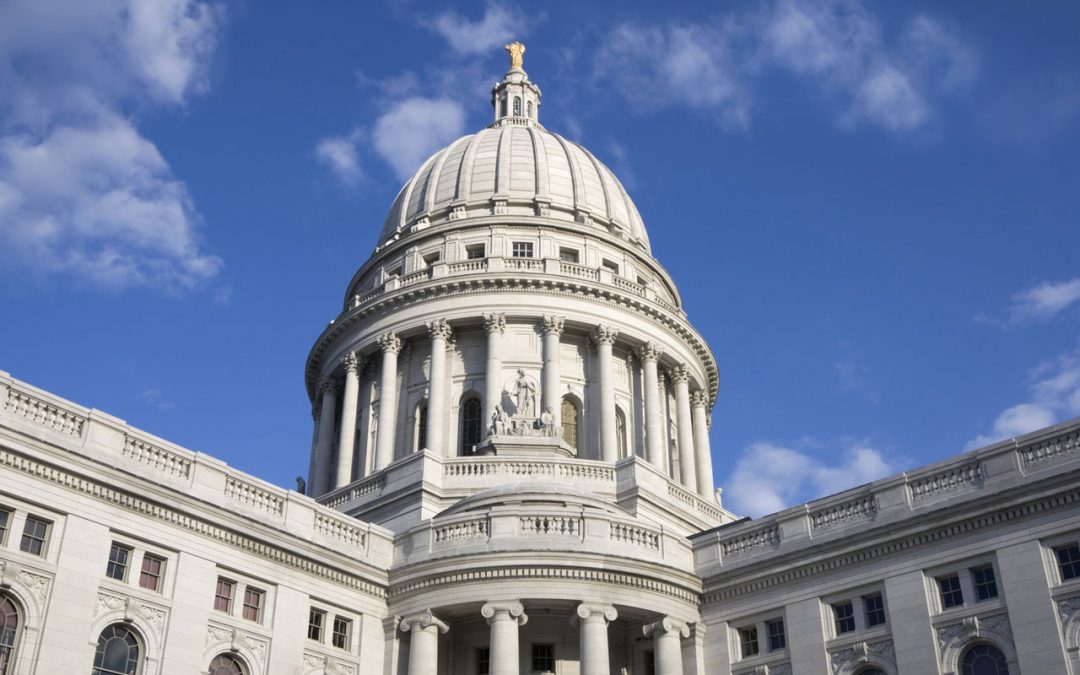
by RENEW Wisconsin | Oct 26, 2021 | Advocacy, Community, Community Solar, Electric Vehicles, Events, Home, Jobs, Legislative Watchlist, Local Government, Policy, RENEW Wisconsin, Renewables, Solar, Sustainability
On October 13, RENEW Wisconsin and Wisconsin Conservative Energy Forum (WCEF) hosted their first-ever Renewable Energy Day at the Capitol in Madison. The event included issue briefings by industry experts on a variety of legislation that has been introduced this year related to the solar and electric vehicle industries. Attendees then went to the State Capitol to speak with their legislators to gain support for these important issues.
During a welcome reception, the evening before the Day at the Capitol, RENEW and WCEF held a panel discussion “Energy in Transition: Policy and Politics.”
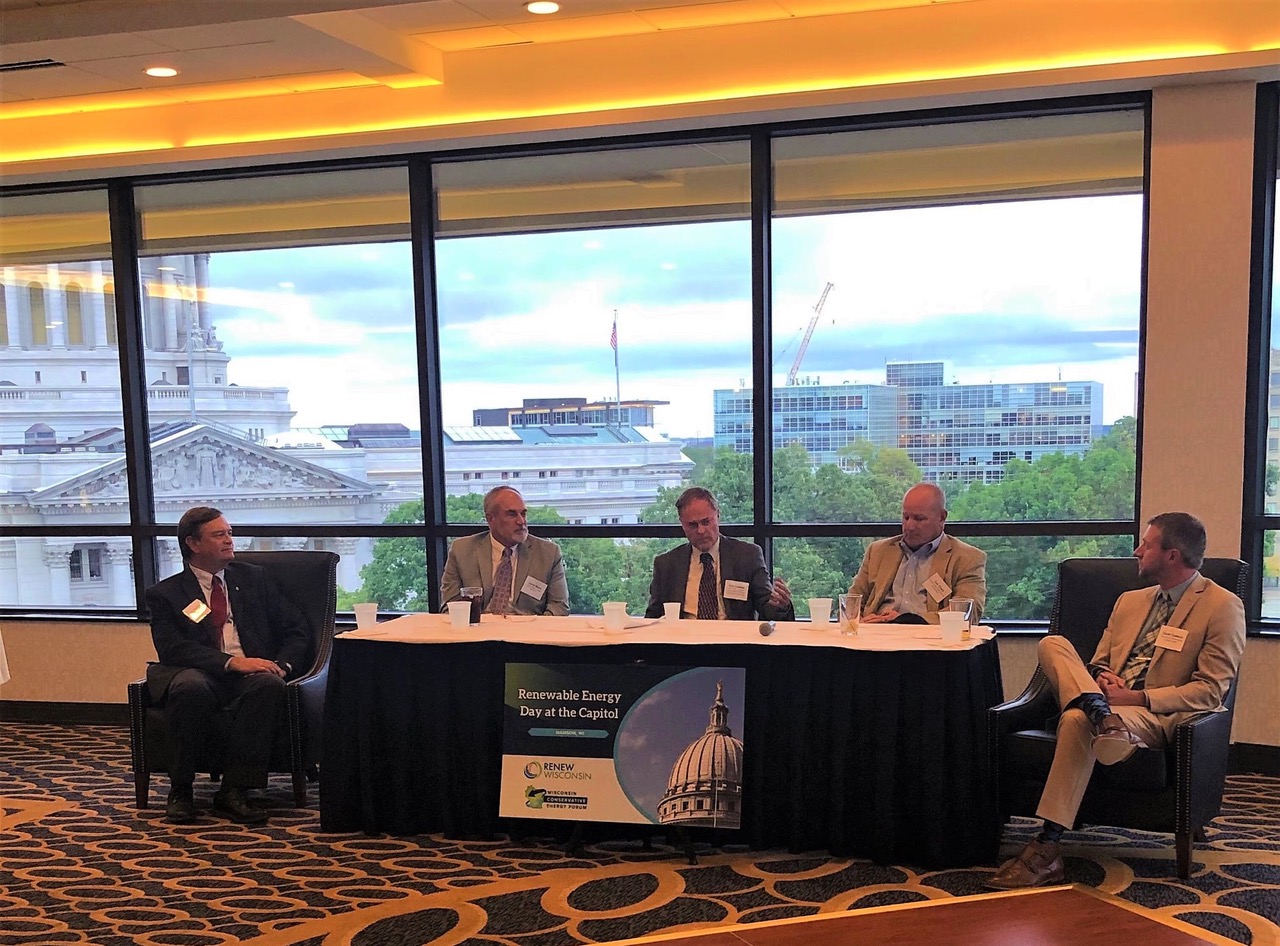
From right to left were moderator, Scott Coenen (WCEF), Dan Ebert (former PSC Chairman), Senator Rob Cowles, Larry Ward (Conservative Energy Network), and Jim Boullion (RENEW Wisconsin).
The panel discussed the current uncertainty in world energy markets and the impact that energy shortages and spiking prices will have on the world. There was consensus from the conversation that panelists believe renewables can help stabilize much of this energy uncertainty, but that the industry needs to be realistic about its role in a world where supply is not meeting demand. Businesses, households, and communities in Wisconsin should be empowered to invest in their own energy generation.
Before attendees went to the Capitol to meet with their legislators, there was an issue briefing with a panel of industry experts moderated by Jim Boullion, Director of Government Affairs for RENEW Wisconsin. The panelists explained in detail what legislative proposals were currently before the legislature, how they will impact renewable energy in Wisconsin, and what arguments are being made on both sides of the issue.
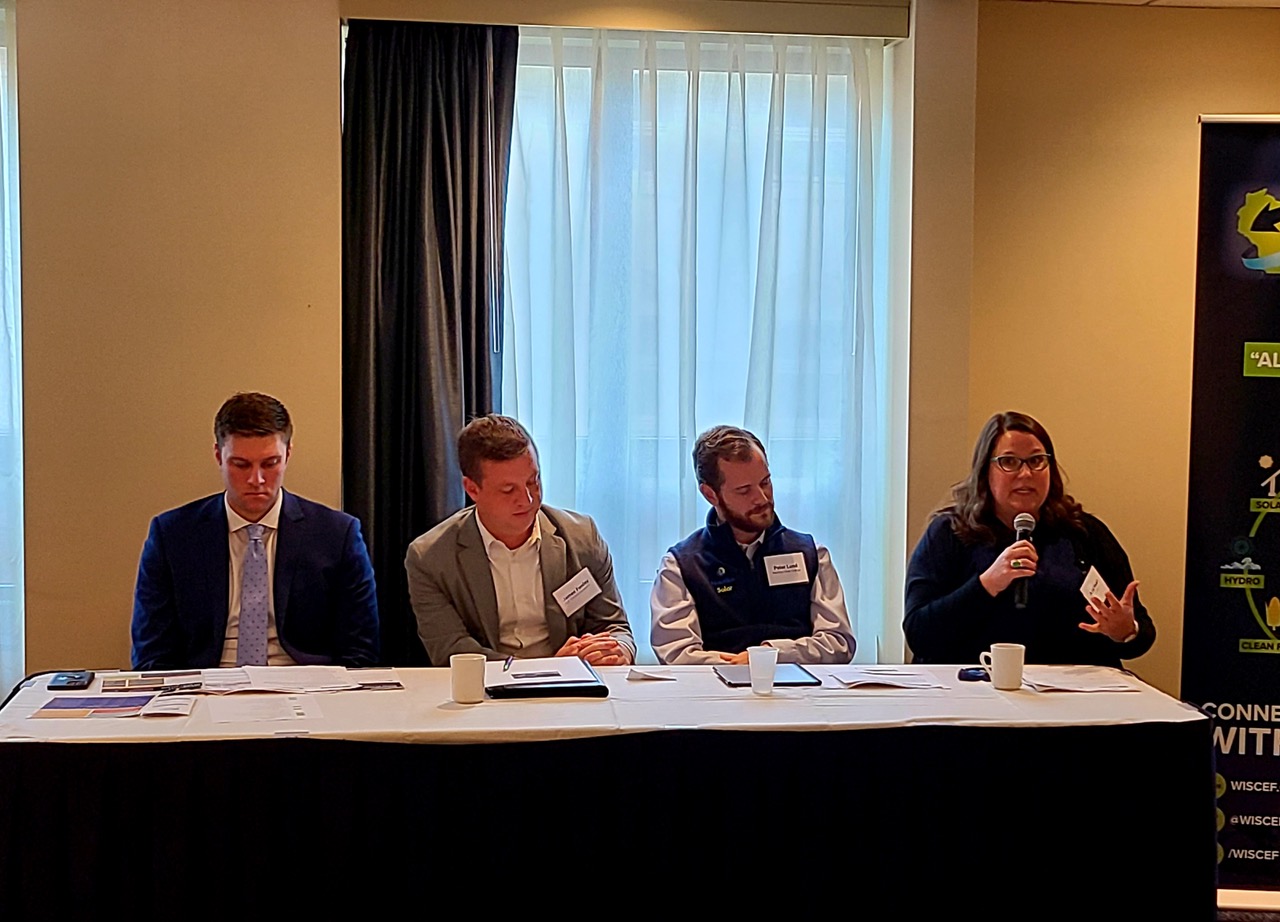
Issue briefing panelists, Left to right: Jason Mugnaini (Chief of Staff, State Senator Rob Cowles), James Fenley (SJL Government Affairs & Communications), Peter Lund (Financial Structuring Associate, Nautilus Solar Energy), and Amy Heart (Senior Director, Public Policy, Sunrun).
The first panel discussed two solar-related issues:
- Expanded Development of Community Solar – (SB 490 / AB 527 – Sen. Stroebel and Rep. Ramthun) This bill would authorize the development of non-utility owned community solar projects and provide access to the economic and environmental benefits of solar for those who can’t afford the full cost of a system, live in multi-family housing, or own property that is not suitable for solar.
- 3rd Party Financing/Leasing – (LRB 1550/1 Sen. Cowles and Rep. Cabral-Guevara) This legislation would clarify that 3rd party financing/leasing of renewable energy equipment is legal in Wisconsin, providing affordable financing options for people, businesses, municipalities, or not-for-profit entities who don’t have the resources to pay for solar on their own property.
The second panel, moderated by RENEW’s Jeremy Orr, Emerging Technology Program Manager, discussed electric vehicle issues such as Wisconsin’s recent Direct Electric Vehicle Sales legislation, SB 462 / AB 439 (Sen. Kooyenga and Rep. Neylon). Albert Gore, Policy and Business Development at Tesla, discussed how allowing manufacturers to sell electric vehicles directly to consumers creates greater access to the electric vehicle market, resulting in growth in the traditional dealership model. Read Jeremy Orr’s previous testimony on this issue here.
Likewise, Justin Ackley, Public Policy Manager at ChargePoint, spoke to the business clarity and consumer transparency that AB 588 / SB 573 (Sen. Cowles and Rep. VanderMeer) would provide, as it would allow non-utility-owned charging stations to charge by the kWh. Similar to a gas pump, where the price per gallon is displayed, kWh charging tells electric owners how much energy they’re paying for, regardless of how long it takes to charge their vehicle. The panel pointed out that while the main goal of this legislation is good, another section of it would create problems by prohibiting charging a fee if any of the electricity going through the EV charger comes from a non-utility source such as a solar+storage system.
Emerging technology allows EV chargers to be installed in areas, especially rural areas, that have inadequate grid infrastructure and can help limit costly spikes in energy “demand charges” for charging station owners. EnTech, a division of Faith Technologies based in Menasha, Wisconsin brought one of their portable solar+storage units to Capitol Square to demonstrate how the technology works and how flexible it can be. A similar system was set up at Bergstrom Ford in Neenah to help reduce the energy bills at their dealership. John Bergstrom, the owner of the dealership, told the story of why he worked with Faith Technologies to install the system in this podcast.
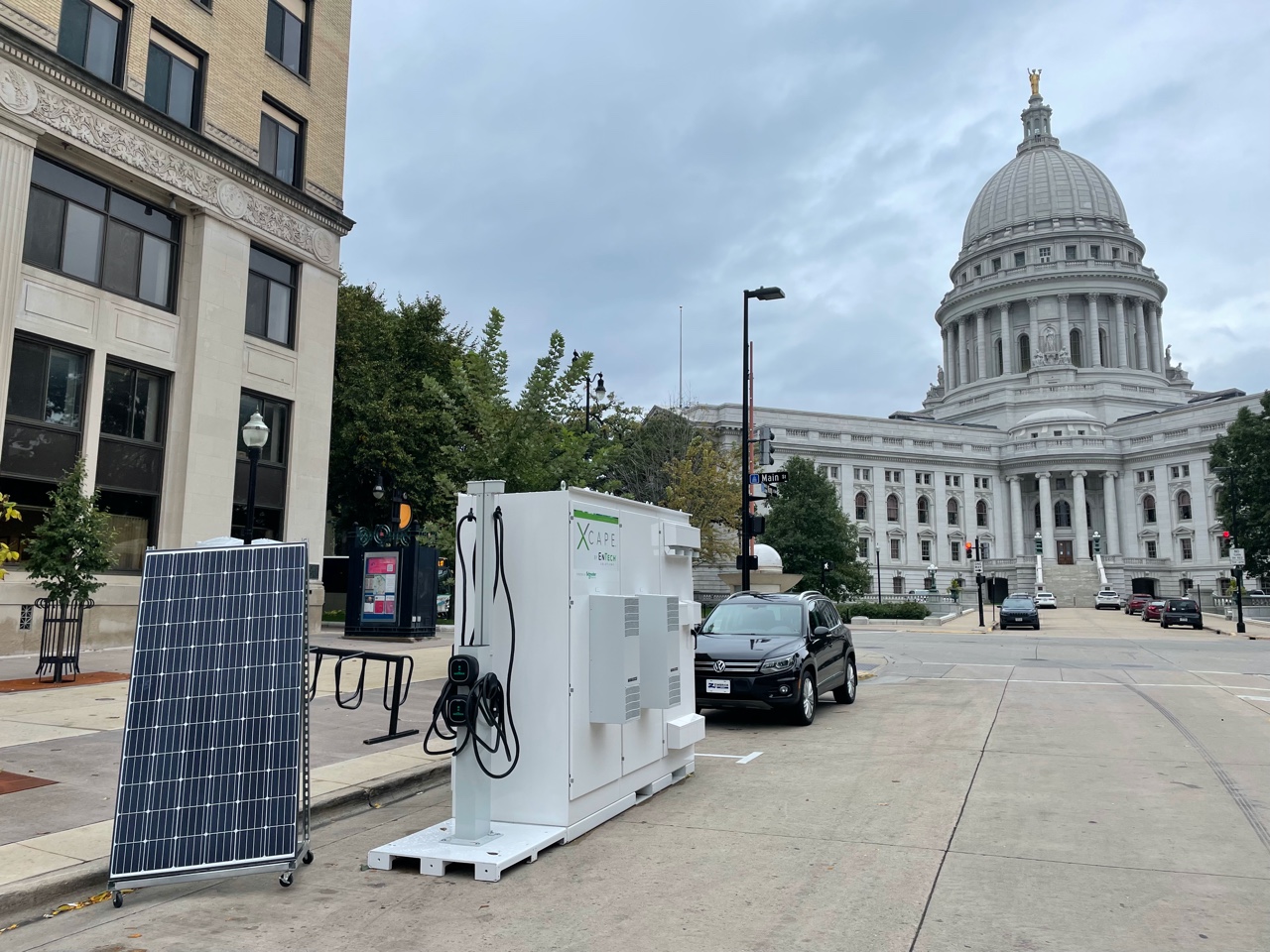
The panel closed the session by discussing two other bills recently introduced by Sen. Rob Cowles:
- $10 million in VW Settlement Funds for EV Charging Station Grants – (LRB-0254/1 Sen. Cowles and Rep. VanderMeer) Grants from these funds would be used to install electric vehicle charging stations at key locations throughout Wisconsin.
- Energy Storage Sales Tax Exemption – (LRB-1513/1) – Sen. Cowles and Rep. Duchow) This legislation would clarify that battery storage devices installed as part of a renewable energy system should be included in the sales tax exemption that already exists for renewable energy system equipment.
The 75 registered attendees made an impact by taking time out of their busy lives and getting involved in the political process. None of these issues will be easy to pass. In fact, most of them face significant opposition from powerful forces. But working together and building coalitions with pro-renewable energy friends helps get important legislation like this adopted.
If you would like to learn what you can do to help as well, contact Jim Boullion, Director of Government Relations at jim@renewwisconsin.org.
by Jeremy Orr | Oct 22, 2021 | Advocacy, Electric Vehicles, Jobs, Renewables
On Thursday, October 21st, the U.S. Department of Commerce Economic Development Administration awarded the State of Wisconsin a $1 million Statewide Economic Development Planning Grant, via the American Rescue Plan, for statewide electric vehicle (EV) adoption initiatives. The grant program is aligned with the Biden Administration’s Build Back Better Agenda to increase U.S. competitiveness and boost the economy.
Wisconsin’s Department of Administration (DOA), in collaboration with the Wisconsin Economic Development Corporation (WEDC) and the Wisconsin Department of Transportation (WisDOT), will administer the grant funds, which will focus on end-user demand, as well as EV charging station planning and EV manufacturing supply chain opportunities.
The funding will also supplement work already underway by the Wisconsin Office of Sustainability and Clean Energy, which is developing a statewide Wisconsin Clean Energy Plan to implement advanced vehicle technologies like electric vehicles to address Wisconsin’s transportation emissions. The Office is also leading efforts on the newly released Regional Electric Vehicle (REV) Midwest MoU, which will focus on medium and heavy-duty transportation electrification across a five-state region in the Upper Midwest, as well as the Lake Michigan Electric Vehicle Circuit, which will create a light-duty electric vehicle corridor around Lake Michigan.
The potential economic growth and job creation from the grant could be substantial. Aside from creating pathways to reduce Wisconsin’s transportation emissions, the $1 million in public funds could spur a five-fold return on investment and job creation, in addition to $2.60 in private investments for every $1 of public investment spent. This means that the $1 million public investment for electric vehicle initiatives has a potential total return of $7.6 million for Wisconsin’s economic growth and job creation.
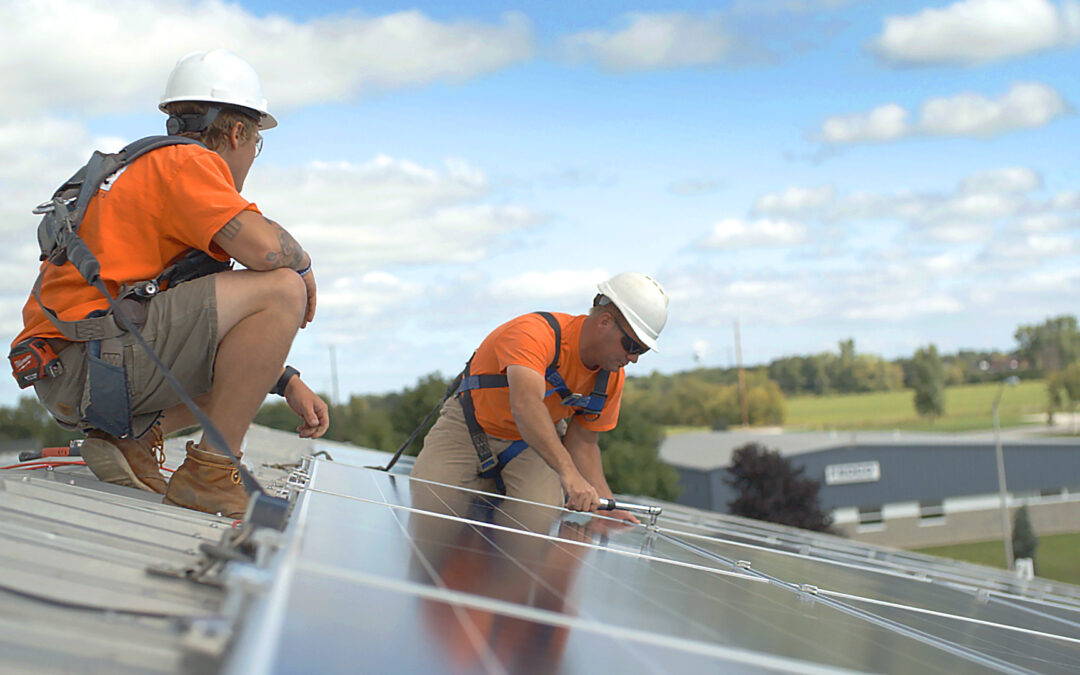
by Heather Allen | Oct 19, 2021 | Advocacy, Electric Vehicles, Jobs, Renewables, Solar
Thirty-one Wisconsin businesses signed a letter supporting ambitious clean energy investments and broad interest in the American Jobs Plan. The signatories, representing higher education institutions, local governments, and biogas, solar, finance, and electric vehicle industries, are committed to “advancing the clean energy economy, building family-sustaining jobs, and expanding economic opportunities for Wisconsinites.”
The letter states, “Wisconsin’s cumulative solar capacity more than doubled in the past year and is anticipated to quintuple in the next 3-5 years. Wisconsin’s clean energy workforce is 76,000 strong, and solar and advanced transportation jobs proved remarkably resilient even during the economic upheaval of 2020.” Investing in these sectors can create jobs and opportunities for Wisconsin to become a clean energy leader in the Midwest.
The electric vehicle sector is a key focus of the American Jobs Plan and an area where Wisconsin has tremendous opportunity to invest. Recent studies and RENEW’s analysis suggest that the federal stimulus funds spent on transportation electrification will yield a 500% return on investment.
Corry Bullis of U.S. FLO said that “Given President Biden’s goal to deploy 500,000 charging stations by 2030, FLO is expanding its manufacturing footprint to meet increasing demand in the U.S and support its climate and air quality goals. Incentives, as outlined by the American Jobs Plan, will be critical to delivering on this promise. We urge Congress to pass an infrastructure package as soon as possible.”
Wisconsin’s solar job market held steady throughout the pandemic. The industry continues to advance, and local job opportunities are growing rapidly, signaling clean energy investments are a bipartisan solution to growing Wisconsin’s economy and advancing careers for local workers.
Ed Zinthefer, an owner of Arch Electric based in Plymouth, WI, says, “More homeowners and businesses are saving money and supporting local jobs in their neighborhoods by going solar. We are busier than ever, growing and hiring and building more clean energy projects. It’s a great time to get into clean energy in Wisconsin.”
Even as the renewable energy markets are growing, there is an urgent need to drive investment and expand our workforce. According to the Solar Energy Industry Association, the solar industry is on a trajectory to reach 400,000 solar jobs by 2030. However, employment will need to exceed 900,000 workers by 2035 to reach President Biden’s 100% clean electricity goal.
Sign your name to support federal investment in clean jobs here in Wisconsin!







